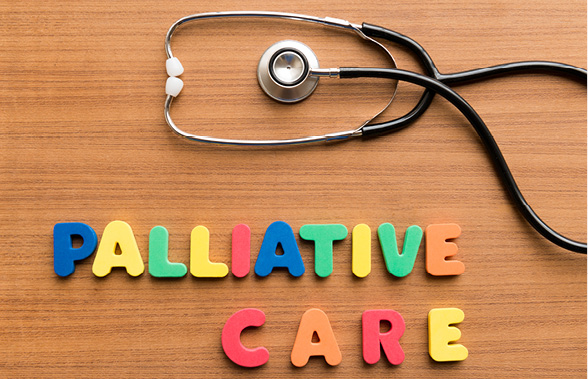Myths and facts about palliative care
Here are some common myths about palliative care, along with the facts and some possible benefits to think about.

Myths, facts, and benefits
Myth: Palliative care means stopping treatment
- Fact: Palliative care does NOT mean stopping treatment. Palliative care can happen while your child continues to receive treatment for the condition or illness.
- Benefits: Palliative care teams or palliative care providers help by:
-
- Finding ways to control your child’s pain or other symptoms (for example: nausea, irritability, trouble sleeping, confusion)
- Helping you make difficult decisions about different treatment options
- Finding supports for you and your other children
- Talking about fears, worries and ‘what if’s?’ that you or someone in your family might be thinking about
Myth: Palliative care will make death happen sooner
- Fact: People do not die faster when they receive palliative care. Palliative care provides comfort and the best quality of life from the diagnosis of an advanced illness until the end of life.
- Benefits: Researchers have shown that people who received palliative care had a better quality of life and have lived at least as long and sometimes longer than people who did not receive palliative care.
Myth: Palliative care is for the last days or weeks of a person’s life
- Fact: Palliative care focuses on your child’s comfort and ability to enjoy life. It may start early on in their experience with illness and be provided for months or even years.
- Benefits: When a palliative care team or provider gets involved with a child and family sooner in the course of the illness, they have more opportunities to get to know you and to learn about your child and your family’s needs and wishes. They are better able to help your child feel well enough to spend time doing what matters to them.
Myth: Palliative care is just pain management
- Fact: Palliative care considers the whole child (not just their body) and family. Your palliative care providers will look after your child’s physical health, as well as the mental health, emotional well-being, spiritual needs and wishes of your child and family members.
- Benefits: Palliative care providers can help manage symptoms, coordinate care, support communication and decision-making, and help your family find therapies and resources, including bereavement care after your child’s death.
Myth: Agreeing to palliative care means giving up hope and accepting that my child will die
- Fact: Palliative care does not mean giving up hope or giving up efforts to care for your child. Agreeing to palliative care does not mean that you feel “okay” about your child dying. Palliative care focuses on providing the best quality of life for your child. You can still try to cure the illness at the same time.
- Benefits: Palliative care helps you to focus on helping your child feel comfortable and loved and helps you spend as much time together as possible doing things your child enjoys. Hope can change from hope for recovery, to hope for more good times together, to hope for a peaceful death. You can hold many hopes at once when your child is very sick.












